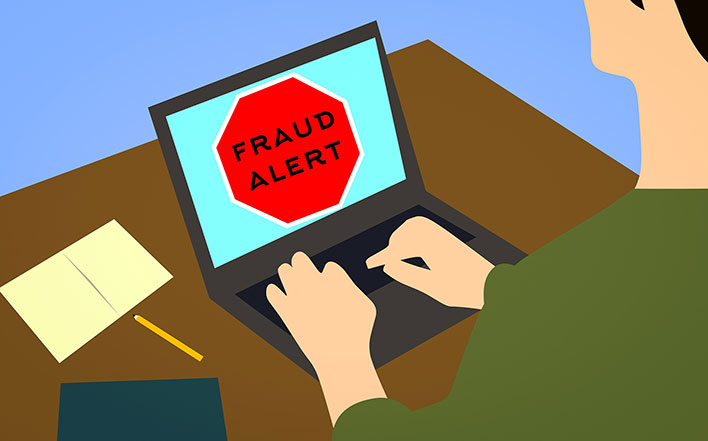FBI Warns Online Holiday Shopping Scams Likely To Top $53 Million, How To Stay Safe

As you sort through the plethora of Cyber Monday deals that are out there, including bargains on gaming laptops, discounts on Motorola phones, and the such, be on the lookout for scammers hoping to capitalize on your holiday spending spree. This is a popular time of year for holiday scams, and such a big deal that the FBI felt compelled to issue a warning to consumers.
In a recent public service announcement, the FBI said its Internet Crime Complaint Center (IC3) fielded over 17,000 complaints last year from consumers who reporting buying an item online but never receiving their goods. The total losses from the collective complaints tallied a not-insignificant loss of $53 million as a result of online shopping scams.
"It is anticipated this number could increase during the 2021 holiday season due to rumors of merchandise shortages and the ongoing pandemic," the FBI warns.
Indeed, there are multiple items in super-hot demand this year because of the ongoing silicon shortage. Game consoles like the PlayStation 5, Xbox Series X, and Nintendo Switch OLED are almost always sold out. Same goes for graphics cards for gaming on PC. Even adjacent products like the Xbox Series X Mini Fridge have sold out in quick fashion, which presents an opportunity for scammers.
According to the FBI, criminals use a variety of tactics to lure victims into their traps. For example, they leverage emails advertising hard-to-find items, including not just gaming systems, but also things like event tickets.

The FBI also says to be on the lookout for untrusted websites promoting discounts that are too good to be true; social media posts that purportedly offer vouchers, gift cards, freebies, and contests (even when shared by a friend or family member); and online surveys, as they could be designed to steal your personal information and identity rather than actually reward you with anything.
This is also the time of year when purchases for pet items ramp up, the FBI's public service announcement states, which is yet another possible vector for scammers to target.
"Criminals will use legitimate website photos to promise the non-existent pet to multiple buyers. Red flags include added shipping/carrier fees, taxes, and or vaccination costs. If purchasing a pet online, consider meeting the animal and owner via video chat before buying to reduce the chances of being scammed," the FBI says.
Tips For Staying Safe While Shopping Online
As to how you can stay safe, the FBI offers up the following extensive list of tips...
- Verify websites prior to making a purchase. Only purchase items from official, encryption-using websites. Web addresses should begin with https:// and include a locked padlock icon.
- Be wary of online retailers who use a free email service instead of a company email address.
- Do not judge a company by their website; flashy websites can be set up and taken down quickly.
- Pay for items using a credit card dedicated for online purchases, checking the card statement frequently, and never saving payment information in online accounts.
- Be wary of sellers who accept only wire transfers, virtual currency, gift cards, or cash, as these are almost impossible to recover.
- Never make purchases using public Wi-Fi.
- Verify the legitimacy of a seller before you purchase, take steps such as looking at consumer reviews and checking with the Better Business Bureau.
- Beware of sellers posting under one name but requesting funds to be sent to another individual, or any seller claiming to be inside the country but requesting funds to be sent to another country.
- Only purchase gift cards directly from a trusted merchant.
- Do not click on links or provide personal or financial information to an unsolicited email.
- Make sure anti-virus/malware software is up to date and block pop-up windows.
- Use safe passwords or pass phrases. Never use the same password on multiple accounts.
- As always - if the deal sounds too good to be true, chances are it is a scam.
All that said, the risk of being scammed is not a reason to avoid Cyber Monday sales (unless you want to), it just means you should be extra diligent, which is sound advice for any time of the year.
If you do fall prey to an online shopping scam, the FBI says to report the incident to ic3.gov as quickly as possible. You should also call your credit card or bank (depending on what account was compromised) as soon as possible to let them know what happened, and to reverse any fraudulent charges.

